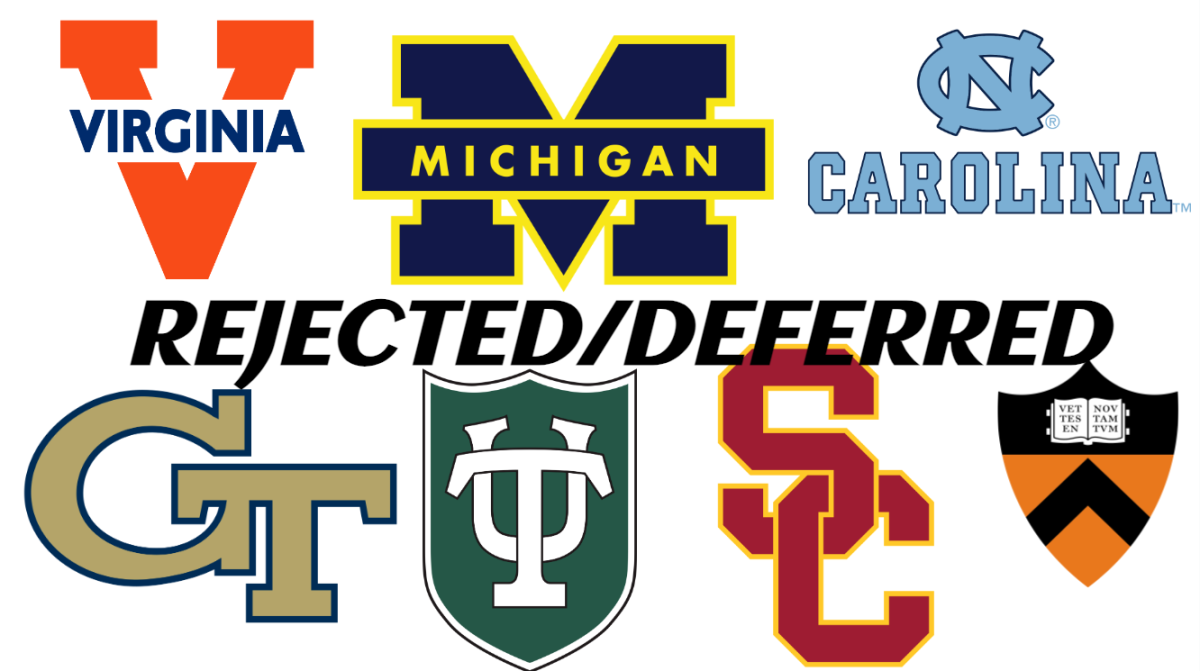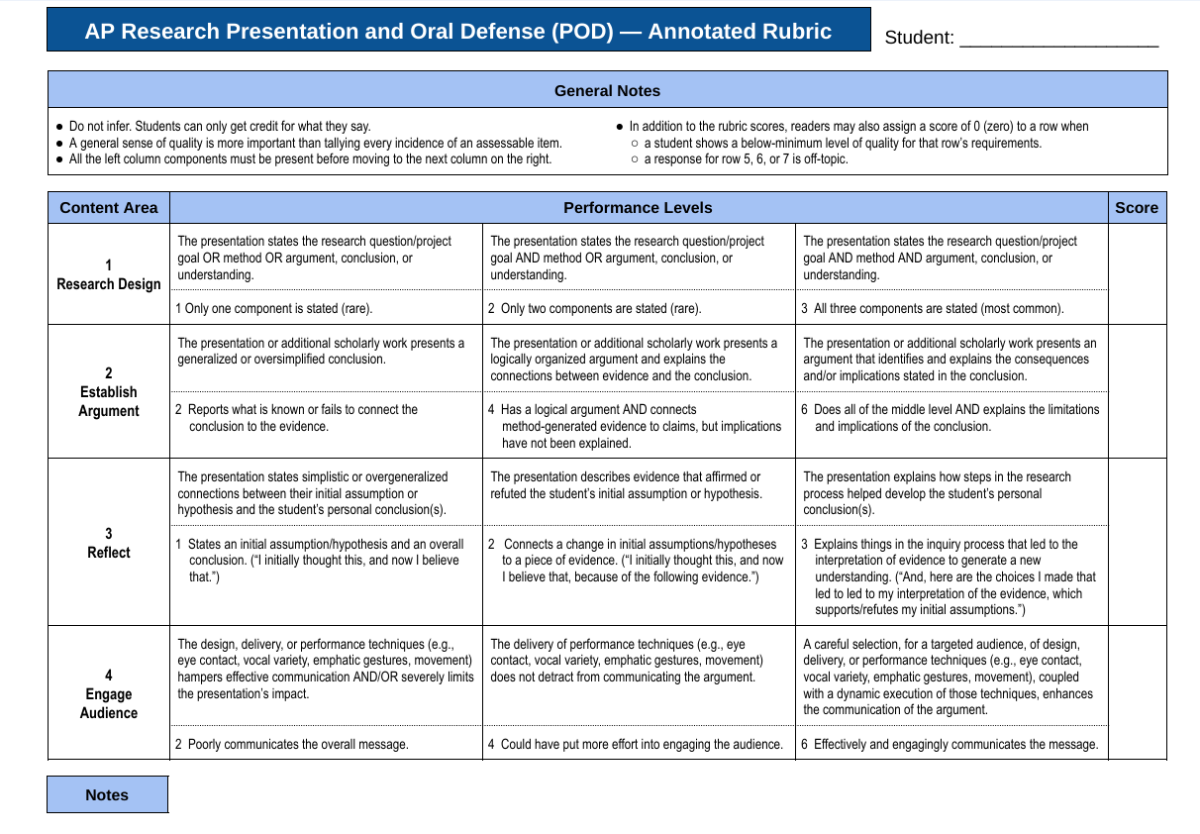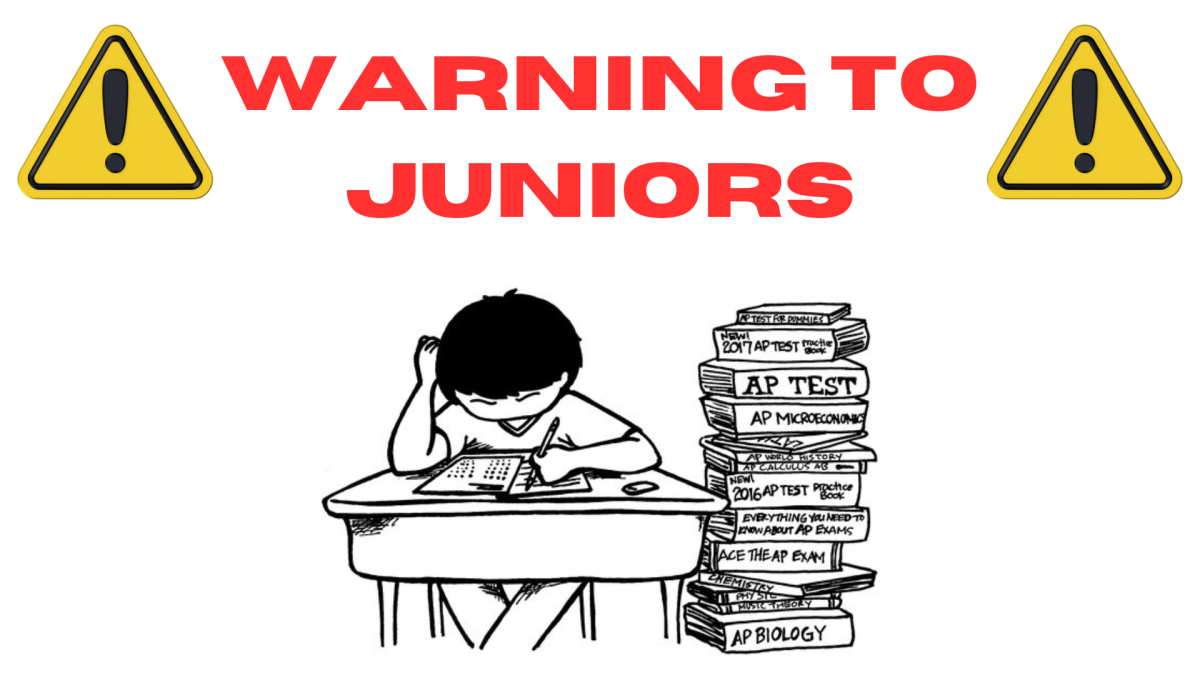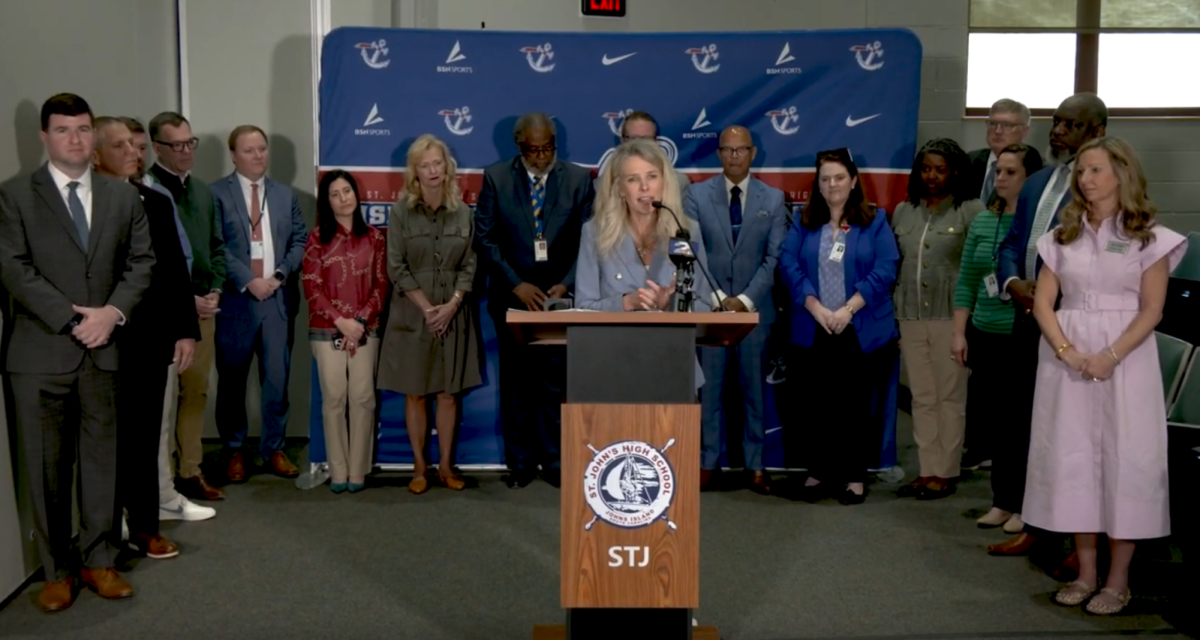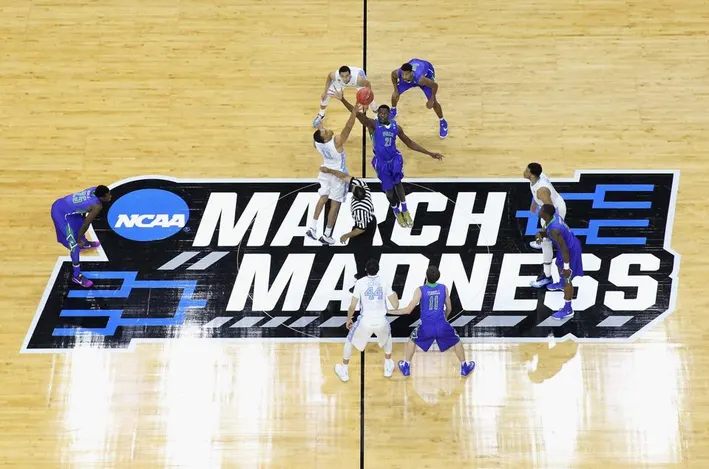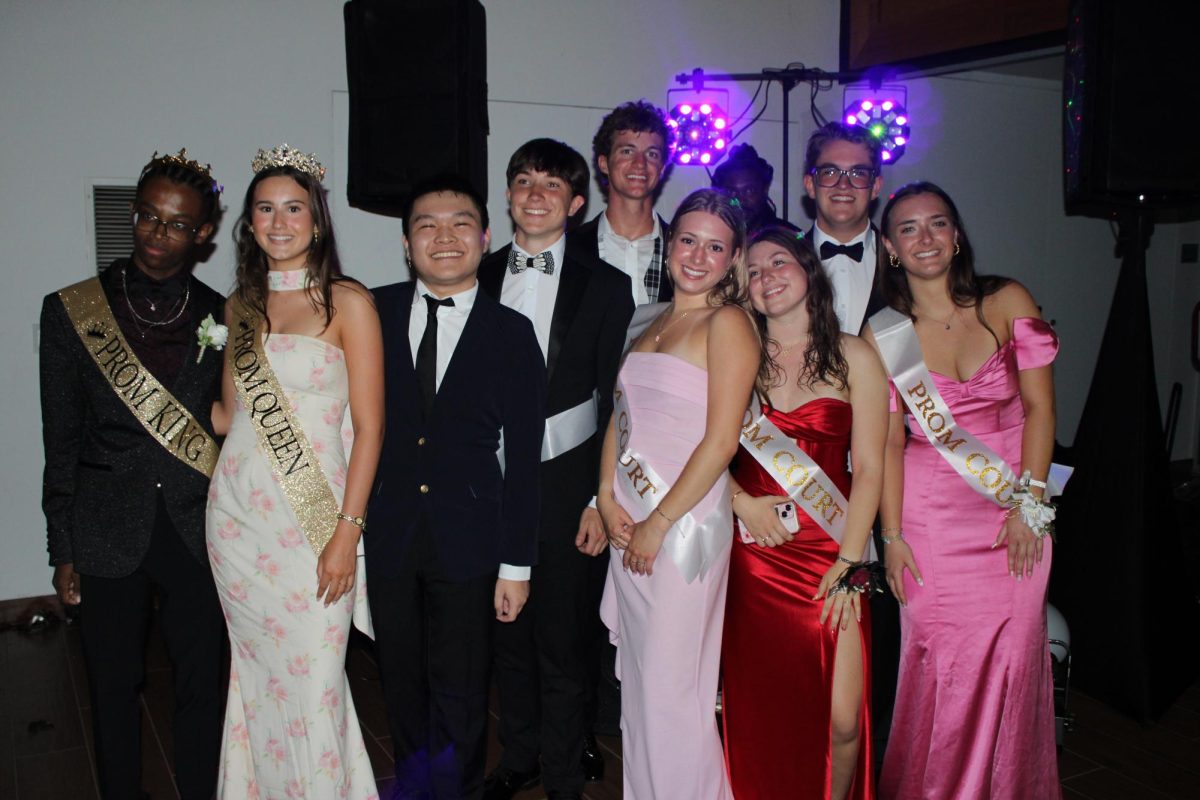As application deadlines for the majority of colleges have already passed, and many decisions have already been released, I think it is time to look at college rejection and deferral letters. In last year’s article, the writers gave two different philosophies colleges tend to follow when giving this news: “short and to the point,” which often lacks any sympathy toward the applicant, and “complimentary but falls flat.” This year, I will be determining whether these philosophies hold true or if I could establish any other ones. I will start with the ones that I feel are bad or kind of mean:
1. The University of Michigan (deferral)
Rather than sending a proper deferral letter, all that applicants received was an update to their portal stating that their decision was postponed and that they would be moved into the regular decision pool Though some may not be fond of a complimentary letter, I think that one sentence that demonstrates sincerity would suffice. In my opinion, this letter is rude and inconsiderate to applicants who put their time in to not receive more than a simple notification. As the letter is not signed by anyone, it is also incredibly impersonal and shows a lack of regard for an individual applicant.
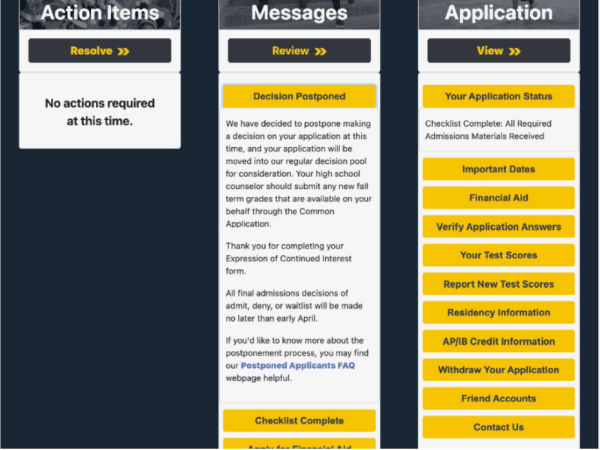
2. Georgia Institute of Technology (rejection)
That’s it!? Similar to UMich, GeorgiaTech’s rejection letter is short and inconsiderate. While I do like a straightforward message, I feel that there needs to be some compliment or uplifting message, even if it may fall short, to make the applicant feel a bit better and that it was not a waste of their time for them to apply.

3. The University of Southern California (deferral)
While the first half of USC’s deferral letter relays helpful information for the applicant’s next steps, the second half is obnoxious and does not work. The statistics are unnecessary because they only seem to emphasize how slight the applicant’s chances are. Through this inclusion, they likely wanted to make applicants feel better by stating that there were more than 5,000 spots still available. However, this intention is not visible because they also stated that only half of the applicants (41,000) were considered in the first round, and now almost 80,000 will be considered for the remaining spots. Additionally, as the letter noted that the committee chooses not to consider any further information from deferred applicants, an applicant is put into a sort of helpless situation. I think these statements conflict, diluting the message that the letter is trying to put forth, and therefore, the applicant would not be able to have much hope. However, I do like that this letter offers assurance, despite that I find most of it excessive.
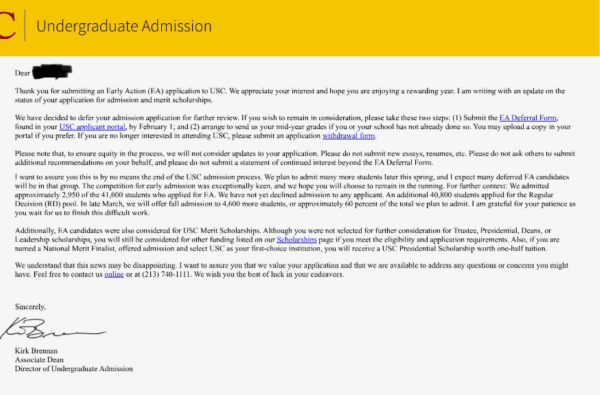
4. University of South Carolina Honors College (rejection)
This rejection letter is just ok but does seem a bit off. I think that beginning with statistics is not the best choice because it feels impersonal and robotic; it seems like something someone wrote quickly without putting much thought into it. I also wish this included some appreciation toward the applicant.
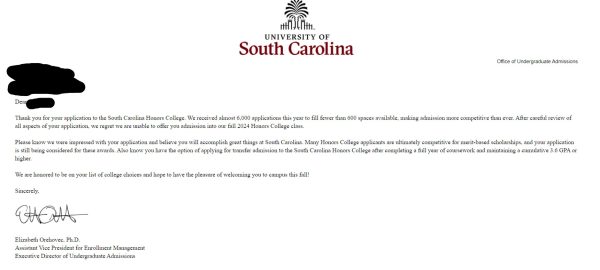
5. University of North Carolina Chapel Hill (rejection)
This letter from UNC seems a bit over the top and pretentious. The sentiment that you’ll “feel at home somewhere else” is a little obnoxious in my opinion. I think this letter assumes everyone will be heartbroken by whoever reads it. Similar to last year, it included that the applicant will always have the option of applying to Carolina the next year, but it seems too early to recommend this. I do, however, like the line appreciating that an applicant put “time, energy, and heart” into applying to the university.
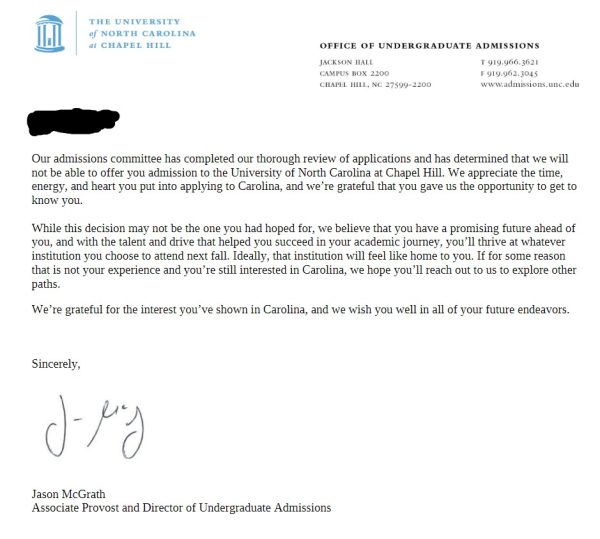
6. Tulane University (deferral)
Tulane used a standard deferral letter; it tells the applicant exactly what an applicant needs to do to move forward with their application and be reconsidered for admission. It seems professional and a bit complementary, and I like that it assures the applicant that their new information will be used in the decision.
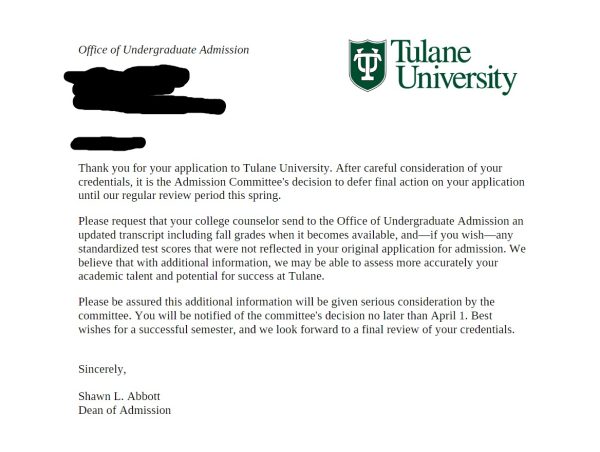
7. University of Texas at Austin (rejection)
I feel like this rejection letter is pretty nice. It’s straight to the point, but considerate of the time that the applicant put in. This letter is also pretty basic, so I don’t have more to add.
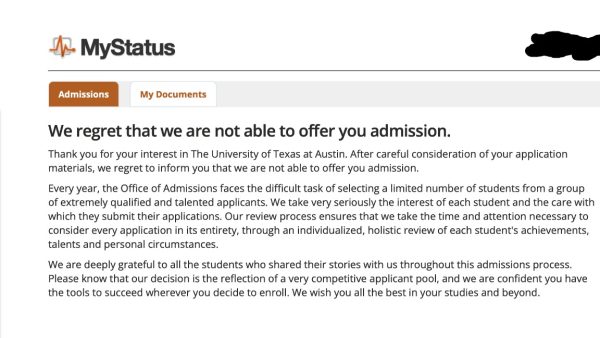
8. University of Virginia (rejection)
I really like this rejection letter because of its sympathetic tone. Even though this letter may also seem over the top, it also seems very personal, which allows for the complimentary to work. The sincerity appears truthful because the letter does not have statements or tone shifts that would alter the overall impression. Also, it makes the news easier for the applicant to digest.
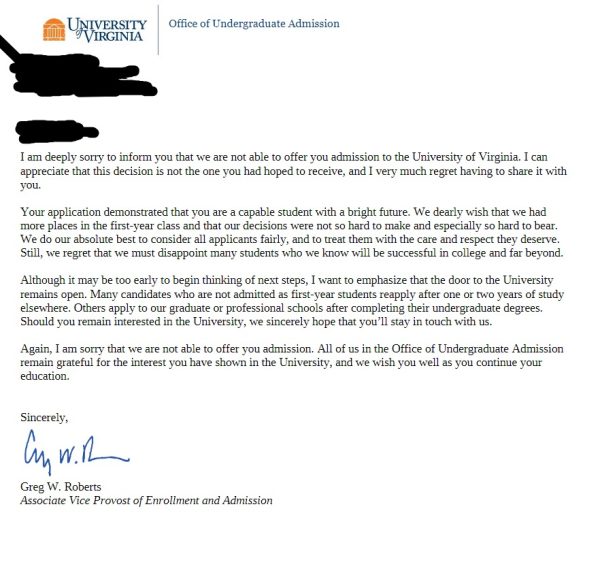
9. Princeton University (deferral)
I think that this deferral is pretty good: it has a good length and seems nice. It’s also less boastful than I expected, coming from the #1 university in the U.S. Perhaps they have it down to a science now. I especially like the line: “The committee recognized your record of achievement and appreciated the time, care and effort you put into your application,” as it is considerate and something I would appreciate receiving. I also like how the letter does not make it seem like an applicant is entirely out of the running to be accepted into the university; the tone of the third paragraph demonstrates that the committee is likely still interested in the applicant and does actually want to see their senior year progress.
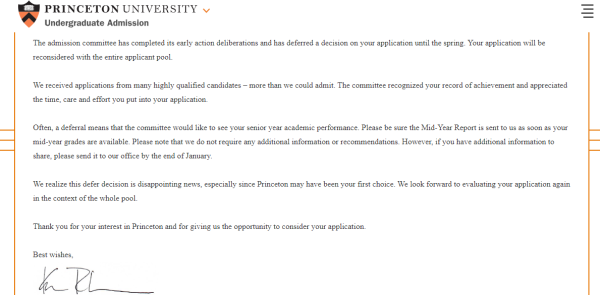
In conclusion, I think that many of the same denotations can be observed within these letters. However, a new type of deferral letter philosophy can also be seen: “the not-even-a-letter” letter. I’m not a fan of these at all because they are unprofessional; an applicant goes through a whole process of applying, writing, and waiting, just to receive an alert. At least give some warning! If y’all want a part 2 to this article, please continue to send your rejections and deferrals my way. Comment down below your thoughts on some of these letters, and hopefully, I will be able to crown a rejection or deferral letter as this year’s funniest.



